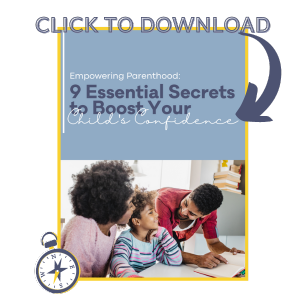Empowering Parenthood: 9 Essential Secrets to Boost Your Child’s Confidence
Confidence is a crucial trait that empowers individuals to navigate the complexities of life with resilience and grace. As a parent, helping your child develop confidence is a rewarding journey that involves fostering self-discovery, self-love, and embracing their unique qualities. If your child is facing challenges or displaying signs of low confidence, know that you're not alone. Building confidence is a gradual process, and by incorporating these nine secrets, you can guide your child towards becoming the best version of themselves.
Empowering Parenthood: 9 Essential Secrets to Boost Your Child’s Confidence
Confidence is a crucial trait that empowers individuals to navigate the complexities of life with resilience and grace. As a parent, helping your child develop confidence is a rewarding journey that involves fostering self-discovery, self-love, and embracing their unique qualities. If your child is facing challenges or displaying signs of low confidence, know that you're not alone. Building confidence is a gradual process, and by incorporating these nine secrets, you can guide your child towards becoming the best version of themselves.









